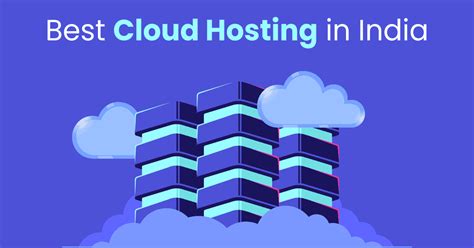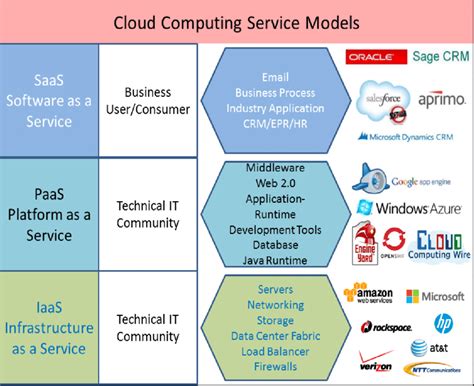The Benefits of Using VPS for WordPress Hosting

If you're running a website or blog using the WordPress platform, you're likely familiar with the many benefits of this popular and versatile tool. WordPress offers a range of customizable themes, plugins, and widgets that allow you to create a unique online presence that suits your specific needs and goals.
However, to get the most out of WordPress, you need a reliable hosting platform that can support your website's traffic and functionality while minimizing downtime and other issues. One popular option for hosting WordPress sites is VPS hosting, which offers a number of advantages over shared hosting or other types of hosting platforms.
- What is VPS WordPress Hosting?
- The Benefits of VPS WordPress Hosting
- 1. Greater Security
- 2. More Control
- 3. Better Performance
- 4. Scalability
- 5. Better Support
- VPS WordPress Requirements
- 1. Technical Expertise
- 2. Server Resources
- 3. Budget
- VPS WordPress Install
- 1. Choose a Server Operating System
- 2. Install LAMP or LEMP Stack
- 3. Create a MySQL Database
- 4. Download and Install WordPress
- WordPress VPS IdCloudHost
- VPS vs. WordPress Hosting
- Contabo VPS WordPress
- VPS Using WordPress Install Ubuntu
- 1. Choose a Ubuntu Version
- 2. Install Apache or Nginx
- 3. Install MySQL or MariaDB
- 4. Download and Install WordPress
- Conclusion
What is VPS WordPress Hosting?
Before we explore the benefits of VPS hosting for WordPress websites, it's important to understand what VPS hosting actually is.
VPS stands for "virtual private server," which means that your website is hosted on a virtual machine that is partitioned off from other websites on the same server. This gives you greater control over your hosting environment, as you can install custom software, configure server settings, and optimize your site's performance to meet your specific needs.
VPS hosting is often compared to dedicated hosting, which gives you even greater control over your server but comes with a higher price tag. VPS hosting is a more affordable option that still gives you a high level of customization and control over your hosting environment.
The Benefits of VPS WordPress Hosting
So why should you consider VPS hosting for your WordPress website? Here are a few key benefits:
1. Greater Security
Because your website is hosted on a virtual machine that is partitioned off from other websites, you enjoy greater security and privacy than you would with shared hosting. With shared hosting, if one website on the server is compromised, it can potentially affect other websites on the same server. With VPS hosting, your website is isolated from other websites, reducing the risk of security breaches.
2. More Control
With VPS hosting, you have more control over your server environment than you would with shared hosting. You can install custom software, configure your server settings, and optimize your site's performance to meet your specific needs. This can result in faster load times, better SEO rankings, and a better user experience for your visitors.
3. Better Performance
Because your website is hosted on a dedicated virtual machine, you enjoy better performance than you would with shared hosting. Your website has access to more resources, including CPU, RAM, and disk space, which can result in faster load times and better overall performance.
4. Scalability
With VPS hosting, you have the ability to scale up your hosting resources as your website grows. This means you can start with a smaller hosting plan and upgrade as needed, without having to worry about migrating your site to a new hosting platform.
5. Better Support
Finally, with VPS hosting, you generally receive better customer support than you would with shared hosting. Because you are paying for a dedicated virtual machine, hosting providers are typically more responsive to your needs and offer faster resolution times for any issues or problems you may encounter.
VPS WordPress Requirements
Before you can begin using VPS hosting for your WordPress website, there are a few requirements you should be aware of. These include:
1. Technical Expertise
VPS hosting requires a higher level of technical expertise than shared hosting, as you are responsible for managing your own server environment. This includes configuring your server settings, installing custom software, and optimizing your site's performance. If you don't have experience with server administration, you may need to hire a web developer or system administrator to assist you.
2. Server Resources
Because VPS hosting requires more resources than shared hosting, you need to ensure that your hosting plan can support your website's traffic and functionality. This includes CPU, RAM, and disk space, as well as bandwidth, which can affect your site's load times and performance.
3. Budget
VPS hosting is generally more expensive than shared hosting, so you need to factor in your budget when choosing a hosting plan. While VPS hosting offers many benefits over shared hosting, it may not be the best option for every website owner.
VPS WordPress Install
Once you have selected a VPS hosting provider and plan, you can begin installing WordPress on your server. Here are the basic steps:
1. Choose a Server Operating System
Before you can install WordPress, you need to choose a server operating system. Many VPS hosting providers offer a variety of options, including Ubuntu, CentOS, Debian, and more. Choose the operating system that best suits your needs and preferences.
2. Install LAMP or LEMP Stack
The next step in the installation process is to install a LAMP or LEMP stack, which provides the necessary web server software to run your WordPress site. LAMP stands for Linux, Apache, MySQL, and PHP, while LEMP stands for Linux, Nginx, MySQL, and PHP. Choose the stack that best suits your needs.
3. Create a MySQL Database
Once your web server software is installed, you need to create a MySQL database to store your WordPress data. You can do this using the MySQL command line client or a web-based interface like phpMyAdmin.
4. Download and Install WordPress
The final step is to download and install WordPress on your server. You can do this by downloading the latest WordPress package from the official website and extracting it to your web server directory. Configure your WordPress settings and customize your theme and plugins to create your ideal website.
WordPress VPS IdCloudHost
If you're looking for a reliable and affordable VPS hosting provider for your WordPress website, IdCloudHost is worth considering. IdCloudHost offers a variety of VPS hosting plans, including both managed and unmanaged options.
Managed VPS hosting plans include full server management and optimization, as well as automatic backups and updates. Unmanaged plans give you greater flexibility and control over your server environment, but require a higher level of technical expertise.
VPS vs. WordPress Hosting
If you're still unsure whether VPS hosting is the right choice for your WordPress website, you may be wondering how it compares to other types of hosting platforms, such as shared hosting or WordPress hosting.
Shared hosting is a more affordable option that puts multiple websites on the same server, sharing resources and potentially compromising security and performance. WordPress hosting is a specialized type of hosting that is optimized specifically for WordPress websites, but may be more limited in terms of customization and control.
In contrast, VPS hosting offers a higher level of customization and control over your server environment, as well as better security, performance, and scalability. While it may be more expensive than other types of hosting, VPS hosting is often the best choice for businesses or individuals with more advanced hosting needs.
Contabo VPS WordPress
If you're looking for a VPS hosting provider with competitive pricing and high performance, Contabo is worth considering. Contabo offers a variety of VPS hosting plans, including both Linux and Windows options.
All Contabo VPS hosting plans come with unlimited traffic, SSD storage, and root access, giving you complete control over your server environment. You can also choose from a variety of server locations around the world, allowing you to optimize your website's performance for your target audience.
VPS Using WordPress Install Ubuntu
Installing WordPress on a VPS using Ubuntu is a straightforward process that requires a bit of technical expertise. Here are the basic steps:
1. Choose a Ubuntu Version
The first step is to choose a version of Ubuntu to install on your VPS. You can download the latest version of Ubuntu from the official website, or choose an LTS (Long-Term Support) version for greater stability and support.
2. Install Apache or Nginx
Next, you need to install Apache or Nginx, which are the most popular web server software options for Ubuntu. You can do this using the apt-get command in the terminal.
3. Install MySQL or MariaDB
To store your WordPress data, you need to install a MySQL or MariaDB database server. You can do this using the apt-get command in the terminal as well.
4. Download and Install WordPress
Once your web server and database server are installed and configured, you can download and install the latest version of WordPress from the official website. Extract the files to your web server directory and configure your WordPress settings to create your ideal website.
Conclusion
Using VPS hosting for your WordPress website offers many benefits over shared hosting or other types of hosting platforms. With VPS hosting, you enjoy greater security, more control, better performance, scalability, and better support than you would with shared hosting or other options.
However, VPS hosting also requires a higher level of technical expertise and a greater budget than other options, so it may not be the best choice for every website owner. If you're unsure whether VPS hosting is right for you, consider speaking with a web developer or system administrator for guidance.
Learn More :
 Exploring WordPress VPS Hosting
12 April 2023 by Admin
Exploring WordPress VPS Hosting
12 April 2023 by Admin
WordPress VPS hosting is a type of web hosting service that provides server space to host WordPress-powered websites. In this article, we will go in-depth to explore WordPress VPS hosting, its benefit...
 The Best WordPress Hosting Sites in 2022 for Bloggers
12 April 2023 by Admin
The Best WordPress Hosting Sites in 2022 for Bloggers
12 April 2023 by Admin
When it comes to creating a website, WordPress is one of the most popular platforms out there today. It’s a powerful content management system (CMS) that allows users to create and manage their own ...
 Everything You Need to Know About WordPress Hosting Sites
12 April 2023 by Admin
Everything You Need to Know About WordPress Hosting Sites
12 April 2023 by Admin
...
 WordPress Hosting: A Comprehensive Guide to Finding the Best Host for Your Website
12 April 2023 by Admin
WordPress Hosting: A Comprehensive Guide to Finding the Best Host for Your Website
12 April 2023 by Admin
If you're planning to launch a website using WordPress, one of the most important decisions you'll make is choosing a reliable and high-quality hosting provider. With the right hosting service, you ca...
 Understanding WordPress Domain and Hosting
12 April 2023 by Admin
Understanding WordPress Domain and Hosting
12 April 2023 by Admin
...
 Dedicated WordPress Hosting: The Ultimate Solution for Your Website
12 April 2023 by Admin
Dedicated WordPress Hosting: The Ultimate Solution for Your Website
12 April 2023 by Admin
If you are looking for a hosting solution that is specifically designed to handle WordPress websites, then you should consider dedicated WordPress hosting. This type of hosting is becoming increasingl...
 The Quest for the Fastest WordPress Hosting in 2022
12 April 2023 by Admin
The Quest for the Fastest WordPress Hosting in 2022
12 April 2023 by Admin
...
 Premium WordPress Hosting: What You Should Know
12 April 2023 by Admin
Premium WordPress Hosting: What You Should Know
12 April 2023 by Admin
When it comes to creating your own website or blog, choosing the right web hosting service is one of the most critical decisions you will make. While there are many web hosting companies on the market...
 The Best Managed WordPress Hosting In 2022
12 April 2023 by Admin
The Best Managed WordPress Hosting In 2022
12 April 2023 by Admin
Choosing the best managed WordPress hosting provider can significantly improve the performance, speed, and security of your website. But with so many options available, it can be overwhelming to make ...
 WordPress Cloud Hosting: Revolutionizing Website Hosting
12 April 2023 by Admin
WordPress Cloud Hosting: Revolutionizing Website Hosting
12 April 2023 by Admin
When it comes to creating a website, choosing the right hosting provider and platform can be crucial to its success. WordPress, the world's most popular Content Management System (CMS), has revolution...
 Best WordPress Hosting 2023
12 April 2023 by Admin
Best WordPress Hosting 2023
12 April 2023 by Admin
Choosing the right web hosting for your WordPress website is crucial for its performance and success. With the ever-growing demand for online presence, the need for reliable and efficient web hosting ...
 WordPress Hosting Services: An Overview
12 April 2023 by Admin
WordPress Hosting Services: An Overview
12 April 2023 by Admin
WordPress hosting services are websites that host WordPress sites. The purpose of WordPress hosting services is to provide a secure and reliable hosting solution that ensures WordPress sites are alway...
 The Best Cloud Hosting for WordPress: A Comprehensive Guide
12 April 2023 by Admin
The Best Cloud Hosting for WordPress: A Comprehensive Guide
12 April 2023 by Admin
WordPress has undoubtedly become one of the most popular content management systems (CMS) in the world, with more than 455 million websites built on it. WordPress is widely used because it is user-fri...
 Understanding Month-to-Month Web Hosting: What You Need to Know
12 April 2023 by Admin
Understanding Month-to-Month Web Hosting: What You Need to Know
12 April 2023 by Admin
Choosing a web hosting provider can be difficult. With so many options available on the market, it can be overwhelming to figure out which one is best for your needs. One popular choice is month-to-mo...
 The Best Magento Hosting: Top Picks and Reviews
12 April 2023 by Admin
The Best Magento Hosting: Top Picks and Reviews
12 April 2023 by Admin
Magento is one of the most popular e-commerce platforms available today, and for good reason – it’s powerful, flexible, and customizable. However, finding the right hosting provider for your Magen...
 The Ultimate Guide to Choosing the Best WP Hosting for Your Website
12 April 2023 by Admin
The Ultimate Guide to Choosing the Best WP Hosting for Your Website
12 April 2023 by Admin
Website speed and performance are critical factors in user engagement and search engine optimization (SEO). You should look for a WP hosting provider that guarantees a fast loading website with minima...
 Understanding Cloud-Based Hosting Providers
12 April 2023 by Admin
Understanding Cloud-Based Hosting Providers
12 April 2023 by Admin
Scalability: Scaling your website is easy on cloud-based hosting. You can increase or decrease the amount of resources your website needs to facilitate increased traffic or inactivity to your website...
 DreamHost Web Hosting: Overview and Features
12 April 2023 by Admin
DreamHost Web Hosting: Overview and Features
12 April 2023 by Admin
When it comes to selecting the best web hosting service for your website, there are a lot of options to choose from in the market. DreamHost is one of the most popular web hosting services that offers...